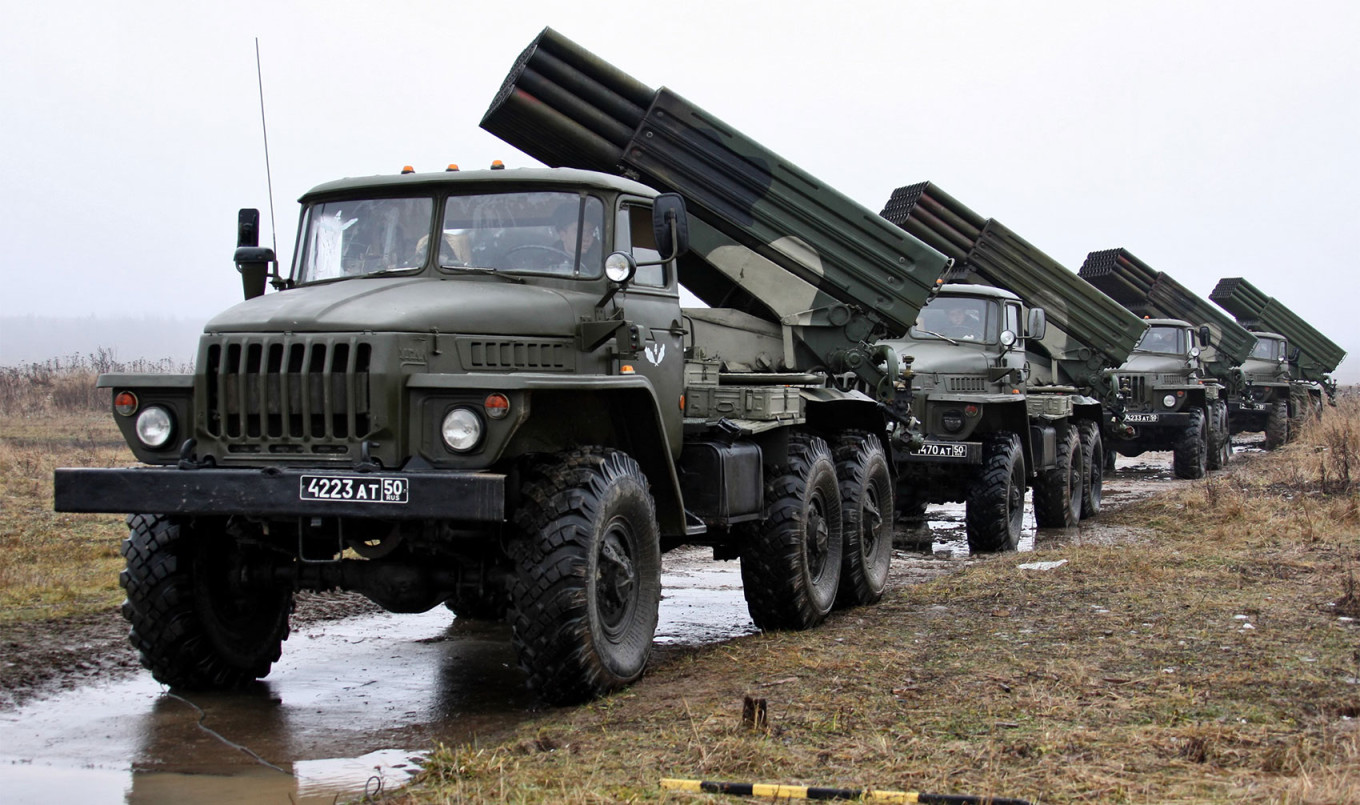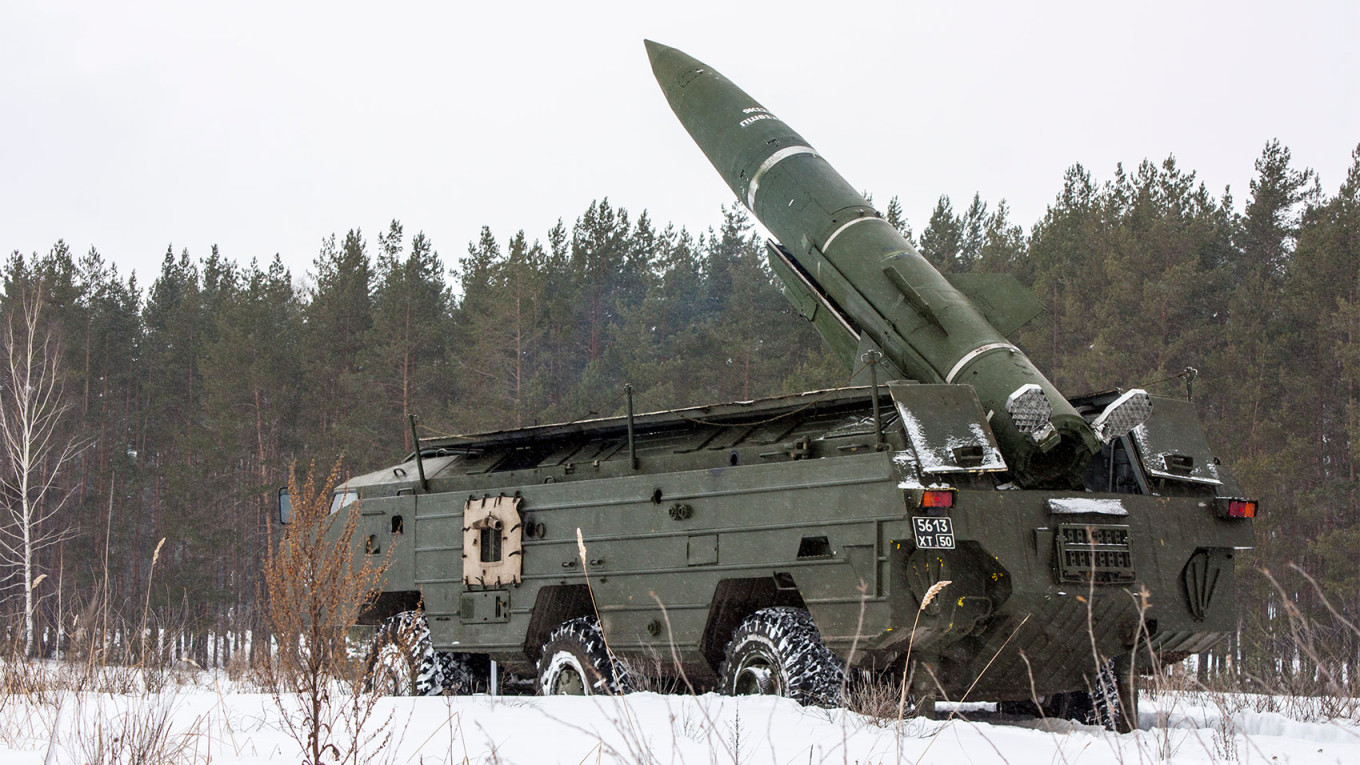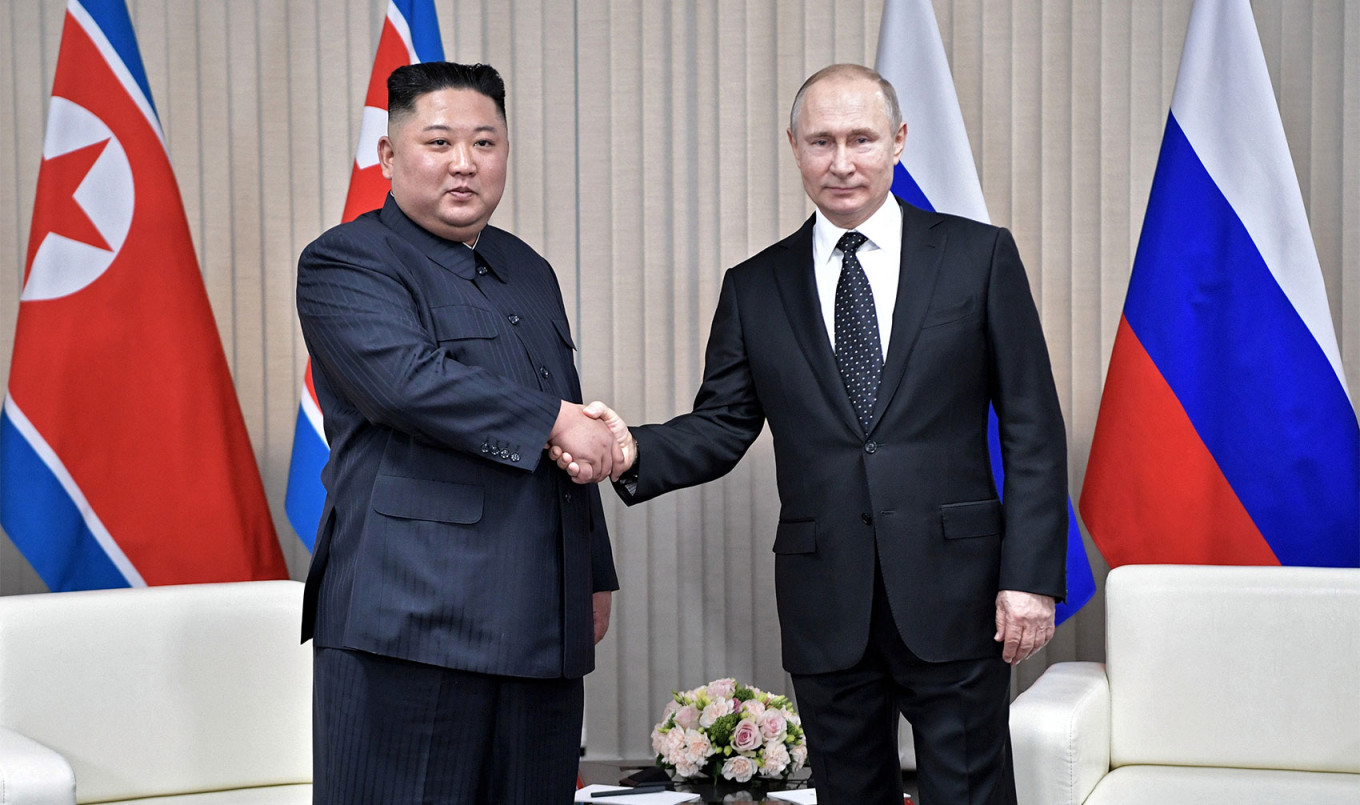Washington claimed last month that Russia was buying weapons from North Korea and using those weapons in Ukraine.
The allegations that the two heavily sanctioned states were stepping up military cooperation came almost nine months into Russia’s war against its pro-Western neighbor that has severely depleted its stocks of artillery shells, ammunition and cruise missiles.
If true, the transfers would violate an arms embargo placed on Pyongyang in 2016 by the United Nations.
Both Pyongyang and Moscow have denied the allegations.
The Moscow Times looked at the evidence of such weapons sales — and the impact that North Korean hardware could be having on the battlefield in Ukraine.
What is the evidence of North Korean arms supplies?
Aside from the claims by U.S. officials, much is guesswork.
The weapons and munitions owned by Pyongyang are mostly manufactured according to Soviet designs and could be easily deployed by Russian forces, Darya Dolzikova, a research fellow at London-based Royal United Services Institute, told The Moscow Times.

While there has been no evidence of North Korean weapons on the battlefield — unlike in the case of Iranian drones used by Russia — this does not necessarily mean that North Korean weapons or munitions are not being deployed in Ukraine.
North Korea could be supplying types of munitions that are hard to identify, for example, and shipments into Russia and transportation to the front could be disguised, according to analysts.
What weapons could Pyongyang be sending to Moscow?
The U.S. has alleged that Russia is buying millions of artillery shells from North Korea.
This sort of purchase would fit with the needs of Russia’s style of fighting in Ukraine, which involves the intense use of artillery and missile attacks.
“Russia has used BM-21 [Grad missile launchers] in Ukraine extensively and North Korea has sold 122mm rockets before,” said Daniel Salisbury, an arms trade expert and senior research fellow at the Center for Science and Security Studies at King’s College London.
Pyongyang has other weapons which Moscow could need, as well.
In addition to anti-tank and surface-to-air missiles, North Korea has extensive stockpiles of ammunition and rocket-propelled grenades.
And, crucially, Pyongyang could help Russia restore its depleted supplies of missiles.

According to Salisbury, North Korea could provide equipment similar to Russia’s Tochka-U ballistic missile system, which Russia has used to target Kyiv’s artillery.
Ukrainian President Volodomyr Zelensky said last month that Russia had fired over 4,700 missiles over the course of the conflict, including barrages of missiles aimed at destroying Ukraine’s energy infrastructure.
This has likely reduced Russia’s stockpiles, with The New York Times reporting last week that Russia is now firing munitions manufactured in the last few months.
How could Russia be receiving these weapons?
Amid a UN arms embargo and sanctions on Moscow imposed in the wake of February’s invasion, North Korea and Russia are likely using clandestine supply channels.
“States like to keep any illicit arms transactions that breach sanctions secret due to the legal implications, but my guess is they’re probably worried about the U.S. and others trying to disrupt shipments,” Salisbury said.
While North Korea and Russia share a 17-kilometer land border, reduced trade after the coronavirus pandemic means arms transfers would be relatively easy to spot if they were sent directly into Russia on trains or trucks.

Instead, it’s more likely that any weapons shipments are passing through a third country, according to Salisbury.
“This is not unusual for North Korea, who frequently send things via circuitous routes in order to deceive anyone who might be watching,” he said.
How could the receipt of North Korean weapons help Russia in Ukraine?
Procuring weapons from countries like Iran and North Korea could provide a stopgap for Moscow as it ramps up domestic defense production to meet the military’s needs, according to Sam Cranny-Evans, a defense analyst at London’s Royal United Services Institute.
This would allow Russia to keep fighting at a similar tempo.
“[Russia is] essentially competing with the West’s industrial output now, and they need to shift their defense economy accordingly, which will take time,” Cranny-Evans said.
At the same time, experts believe that there are risks associated with North Korean missiles and ammunition, which are not likely to have been manufactured to a high standard.
“Russia has no idea what the quality control in North Korea is like,” William Alberque, the director of arms control at the International Institute for Strategic Studies, told The Moscow Times.
“And if there’s one place I have a little bit less faith in quality control than Russia, it would be North Korea.”
Leave a Reply